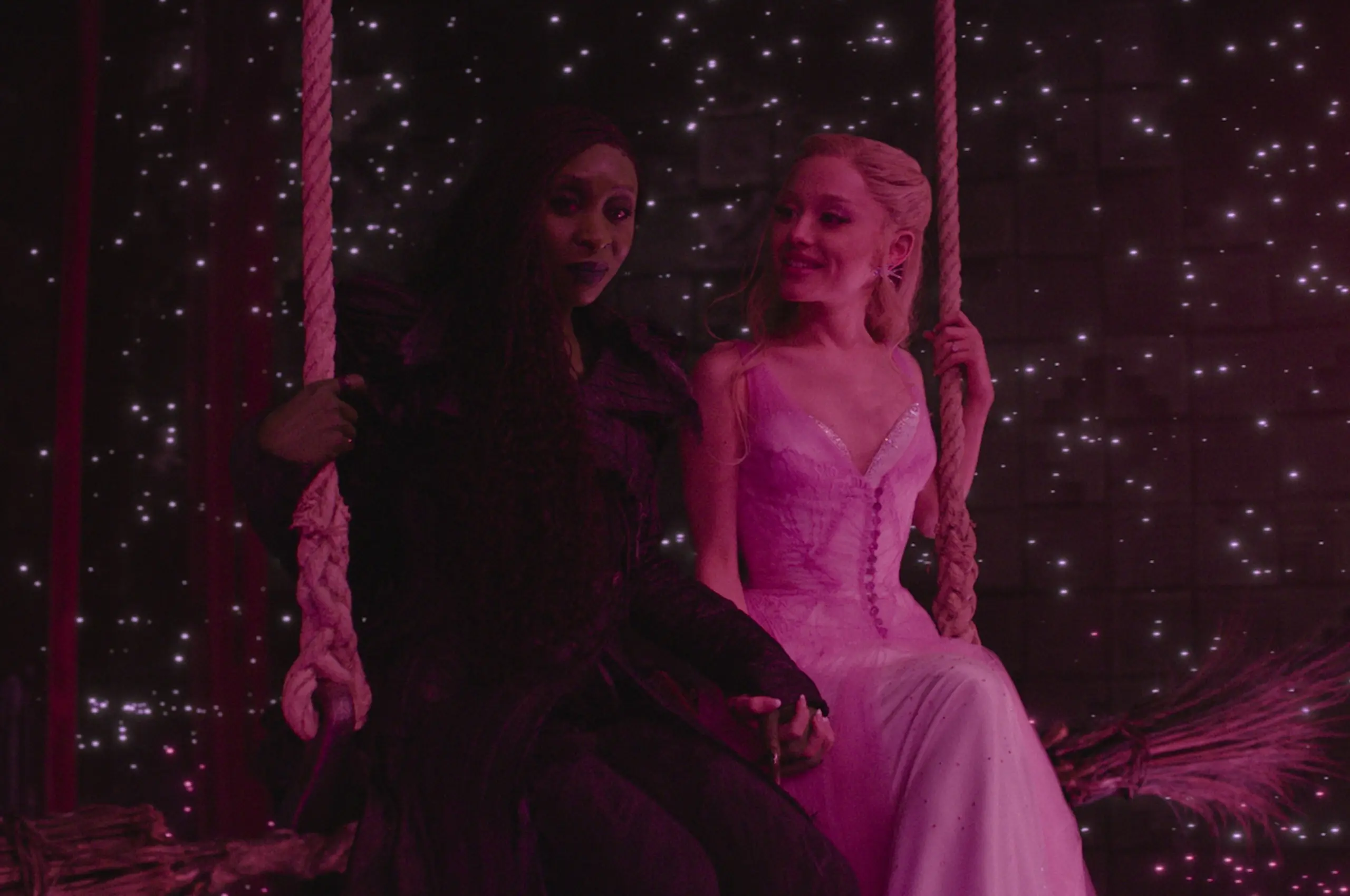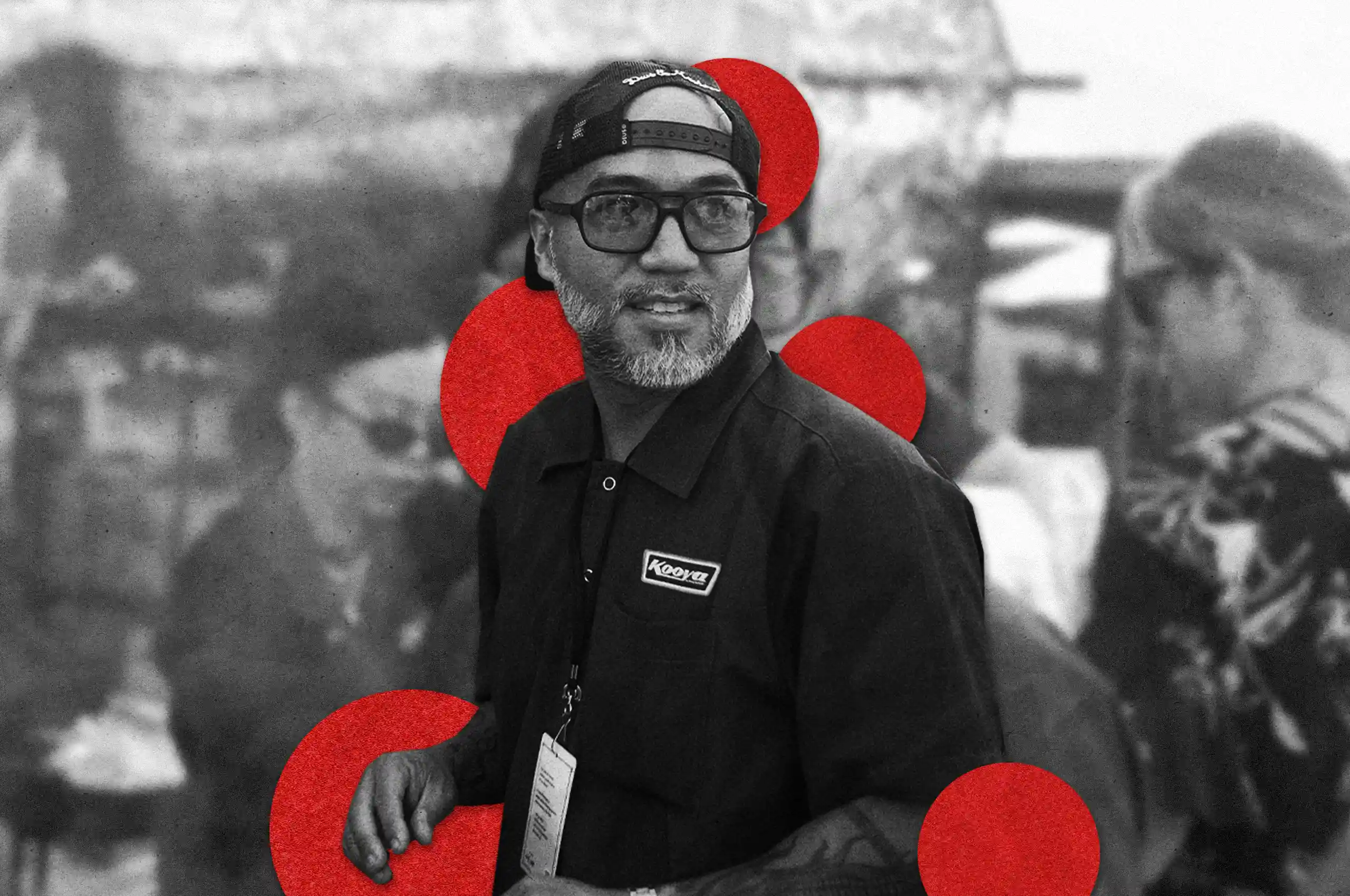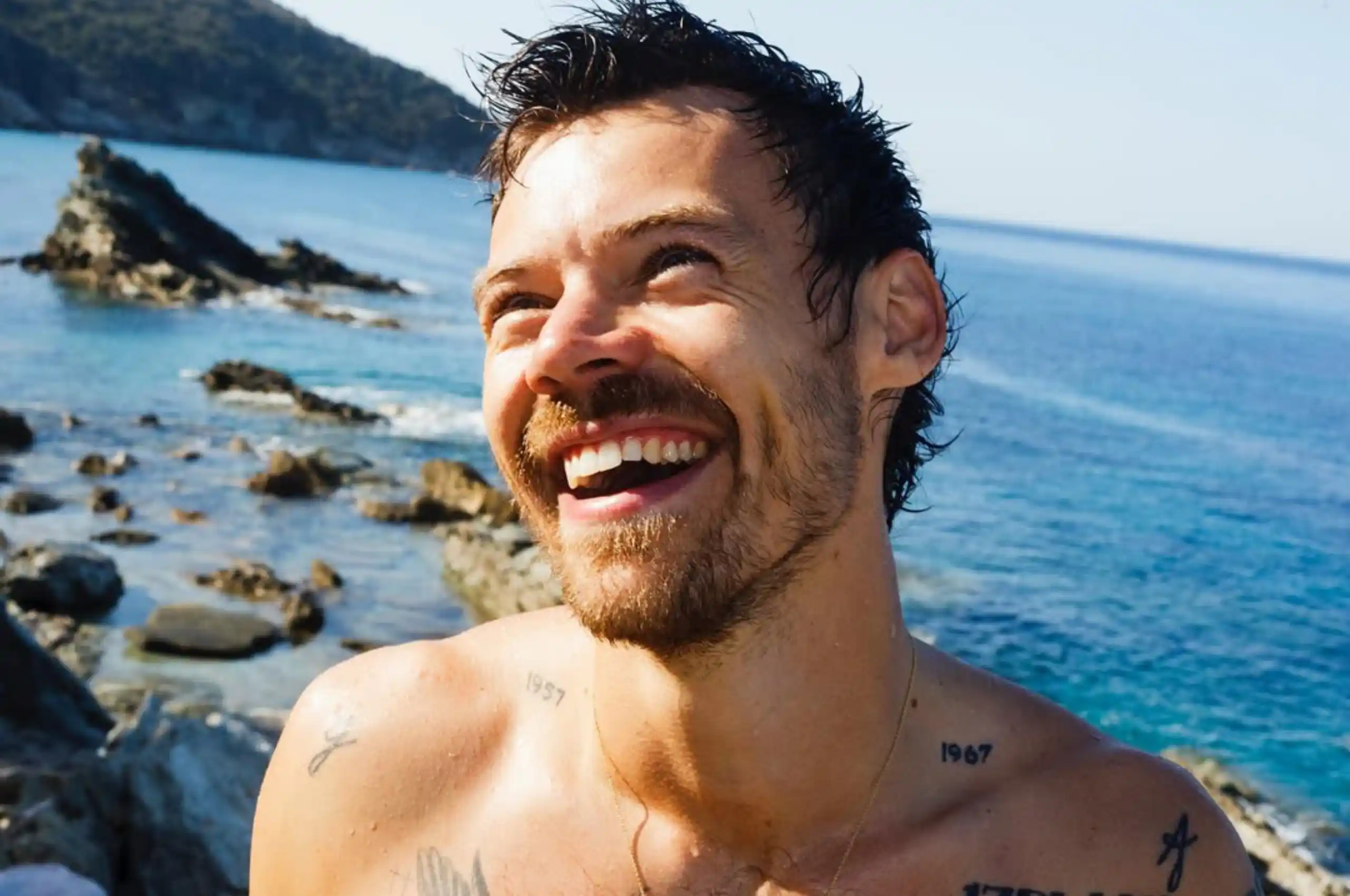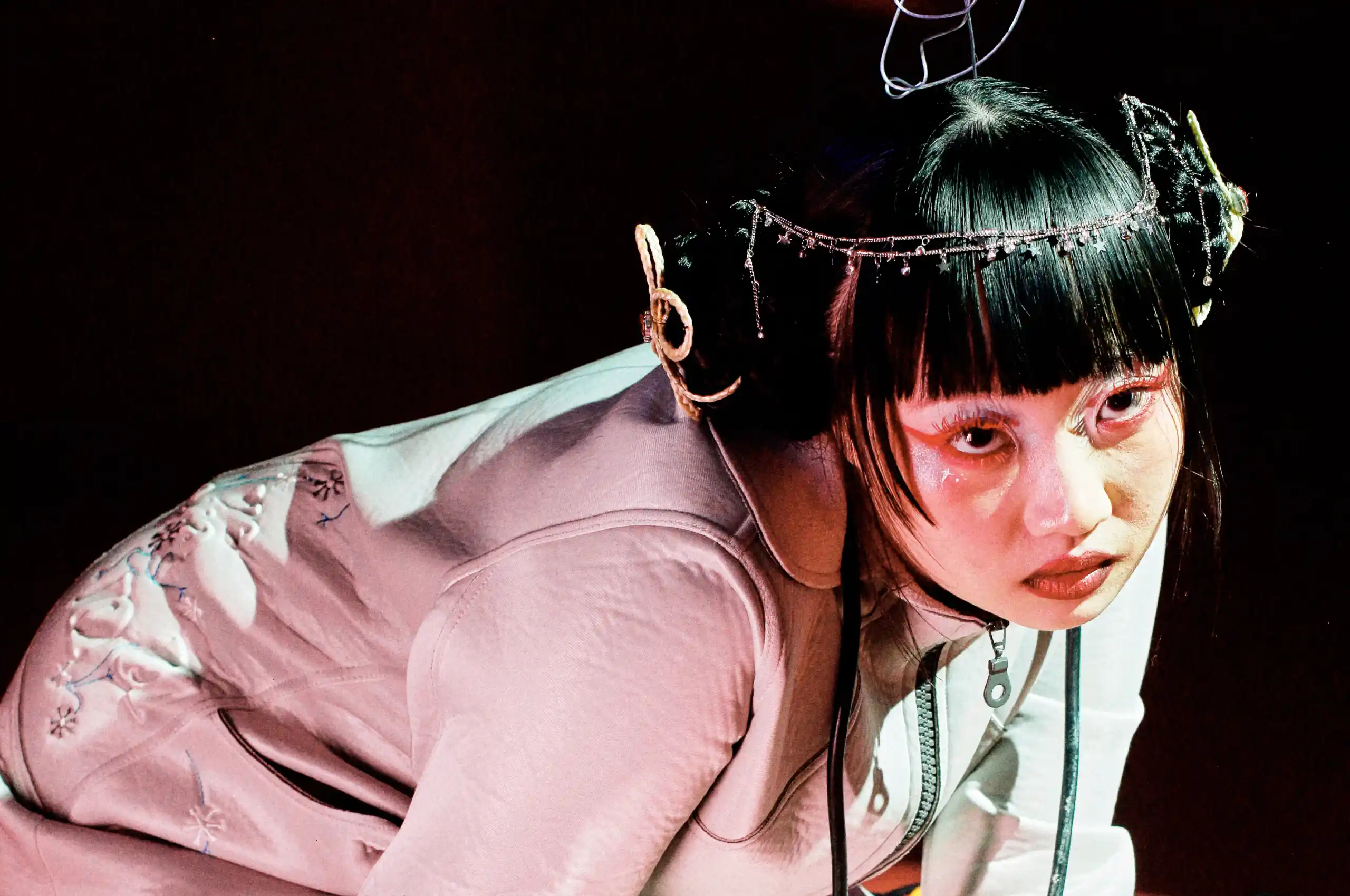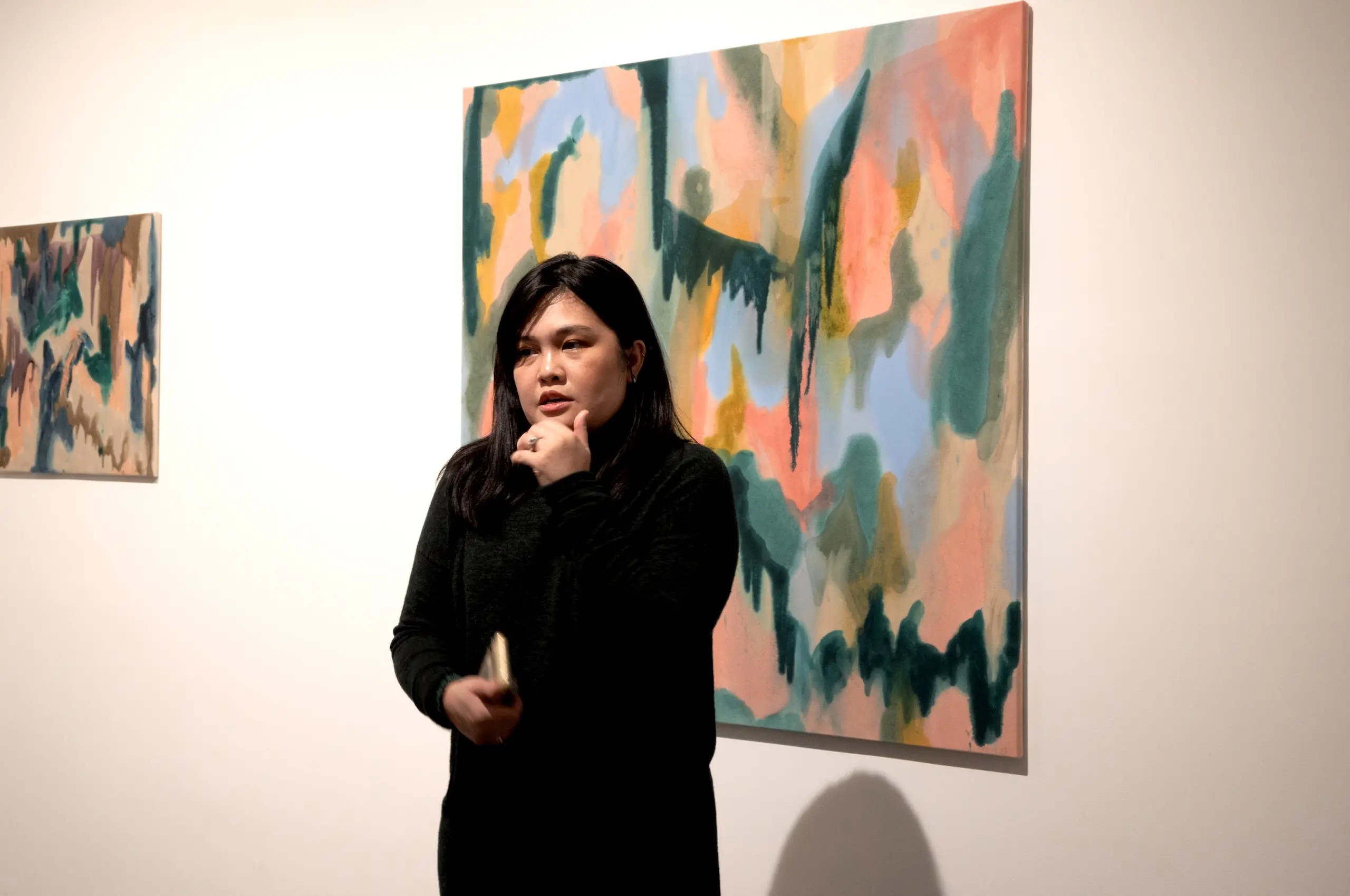Wicked, the Jon M. Chu-led production that gripped theater kids across the nation — nay, the planet — in its tight, acrylic-tipped chokehold, was definitely a Team Elphaba affair.
Yes, Wicked saw both Cynthia Erivo and Ariana Grande step into their respective green and pink roles with poise, and yes, it did give us one of the most intimate platonic friendships in Hollywood history (both on and offscreen), but its emotional heart is undeniably Erivo’s Elphaba. Forced to reckon with a city run by a wizard-conman (played with glib flair by Jeff Goldblum), the fledgling witch finds herself taking a stand for the Animals and against Oz’s totalitarian regime. By the time she belts out the last bars of “Defying Gravity,” Elphaba has gone full-on rebel, leaving Glinda (no longer Galinda) to become Oz’s sparkly, smiling token girl.
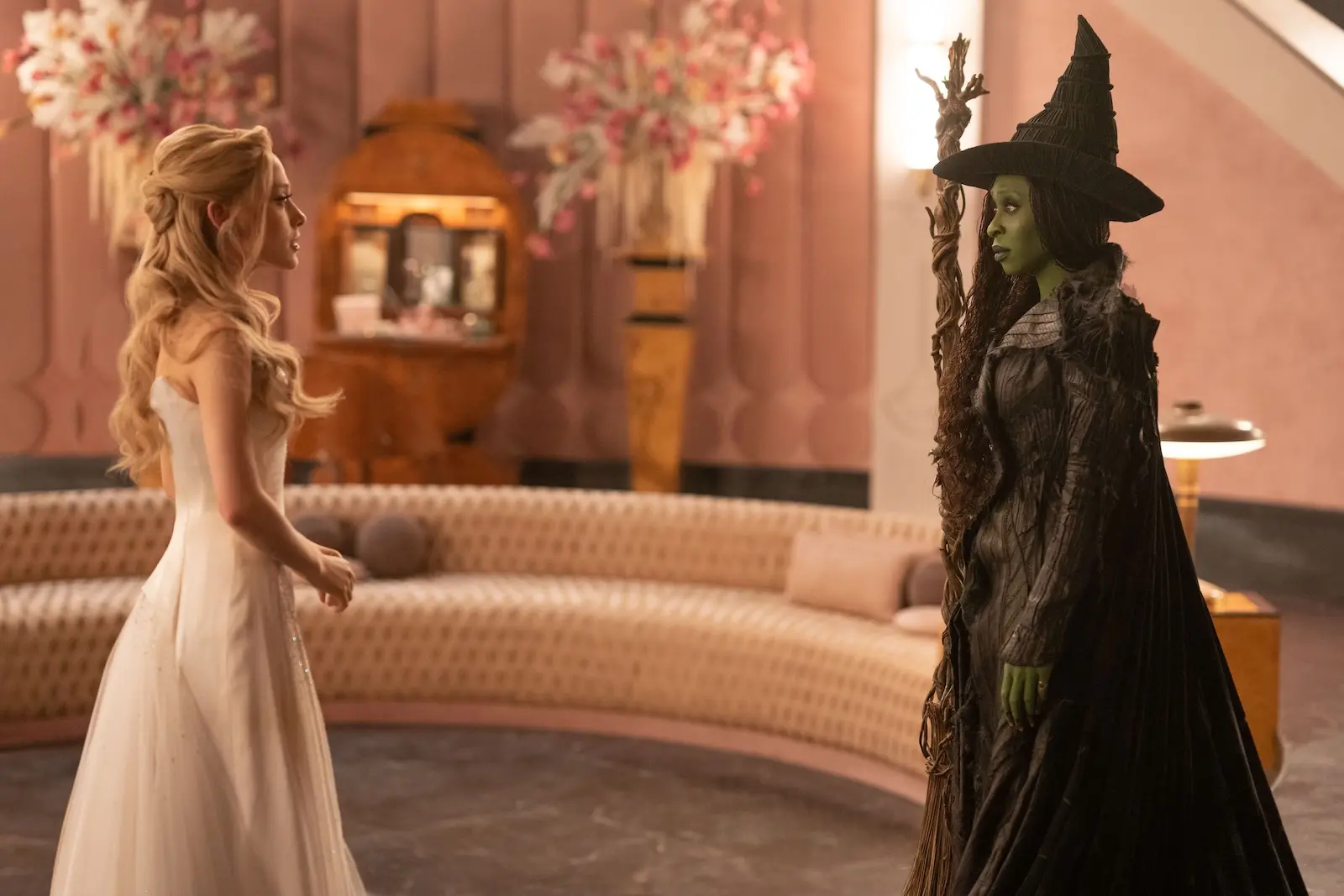
But in Wicked: For Good, Glinda quickly realizes that she can’t just smile and “toss-toss” her problems away. Her best friend, who she’s been forced to cut ties with, is being hunted down by the Wizard and his cyclone-weaving right-hand woman, Madame Morrible (Michelle Yeoh). Her boyfriend Fiyero (Jonathan Bailey) seems less interested in planning their wedding and more worried about finding Elphaba. She has a shiny pink bubble now as her branded mode of transportation, but even she — the Queen of Pink herself — feels that this is superficial in the face of Animals disappearing and angry mobs chasing down her former partner in crime. “I couldn’t be happier,” Glinda sadly croons at one point, “though it is, I admit, the tiniest bit unlike I anticipated.”
Glinda’s going through an existential crisis, and this is made all the more believable by Grande and her ability to add emotional depth to what could have easily been a pink, two-dimensional character. If Wicked introduced the world to Grande as a serious actress (she did, after all, nab an Oscar nomination for it), Wicked: For Good shows her diving deeper into Glinda the Good and her disillusionment of the glamorous, rainbow-full life she was promised. “A shocking amount of the picture plays out on Grande’s face,” wrote Vulture’s Bilge Ebiri of Grande’s performance, “and the actress — one of the most photographed, written-about, obsessed-over women on the planet — holds our attention with her character’s secret heartache.”
Complex Ensembles
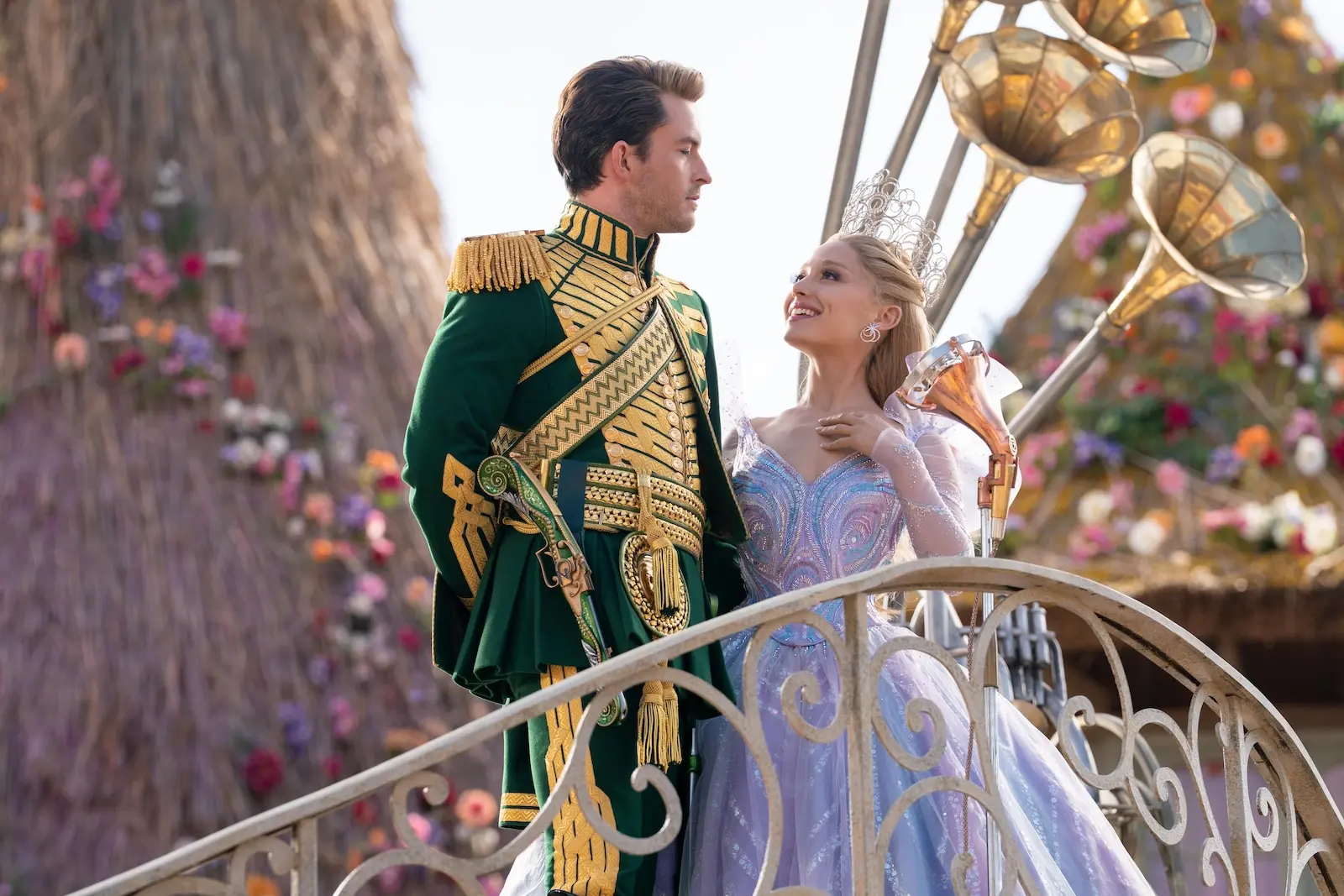
But this isn’t to say that the rest of the cast don’t step up to the plate in Wicked: For Good. Erivo leans harder into Elphaba’s frustration and anger, as the green-skinned pariah finds herself even more untethered from a society that was so rarely kind to her. Elphaba has always been the narrative’s most complex character, either in the first movie, the Broadway musical, or Gregory Maguire’s dark fantasy novel; Erivo understands this to a tee, and does not shy away from uncovering the desperate wickedness of her character. “Alright enough, so be it,” she screams in “No Good Deed,” a song which I’m sure will be one of the sequel’s most sung-along ballads. “No good deed will I do again.”
Other stand-out performances from the cast include Marissa Bode as Nessarose, who, after letting the power that comes with governing Munchkinland go to her head, is arguably the real wicked witch of Oz. Ethan Slater gives a heartbreaking, rage-fuelled performance as Boq, making his fate by the end of the movie all the more tragic. While I am usually one to sing Bailey’s praises, his hot, protective Prince Fiyero often feels more or less like sexual eye candy for both Elphaba and Glinda. But perhaps the girls’ shared love for their prince draws them even closer together.
Darker, But Still Hopeful
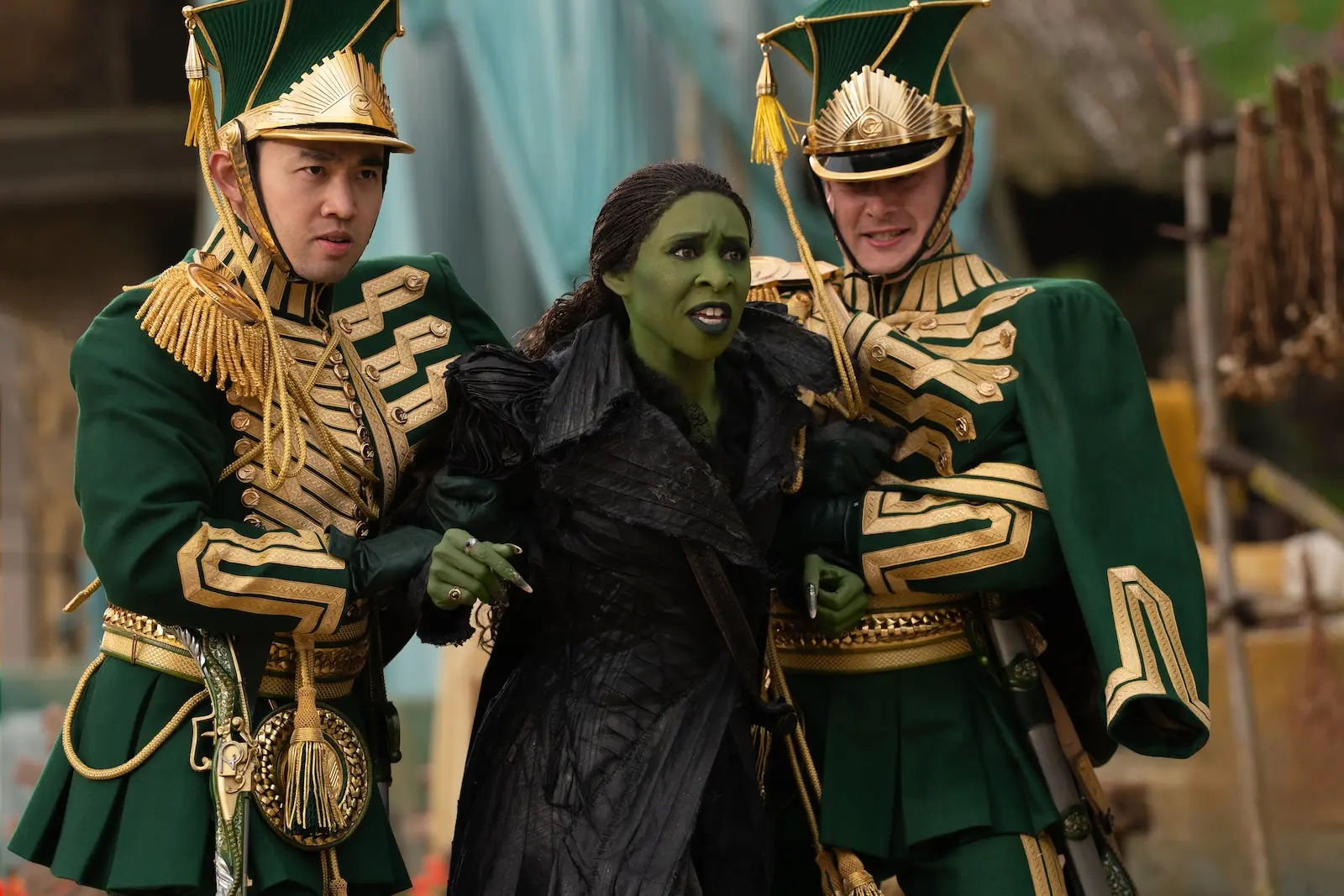
The characters are undoubtedly going through their own inner turmoils, but this turbulence also spills into the movie’s narrative. The world of Wicked: For Good feels many shades darker than its predecessor, and that may be because its stakes feel much higher. Chu has moved his focus away from the hopeful halls of dear old Shiz and onto a cruel city that mirrors, perhaps too obviously, the crises that plague our own world. Themes of fear-mongering, discrimination, deportation, and propaganda are abundant in Chu’s version of Oz, and they’re brought to the forefront of Wicked: For Good. As the director quipped on a 2024 episode of IndieWire’s Filmmaker Toolkit podcast,
“A charismatic leader who gaslights a community that this woman is wicked just because she’s standing up for a marginalized group of people in the society: how could that be [political]?”
Despite this shift towards the realistic, Chu has still given audiences a hopeful movie. Most of his key players are no longer fooled by the Wizard’s promises of a utopic Oz, and much of their turmoil comes from fighting for his downfall. Glinda is finally starting to realize that her complicitness in the Wizard’s rule is no longer acceptable, and the Wicked Witch of the West is still causing mayhem for the Animals, smear campaign against her be damned. Elphaba puts it best in “No Place Like Home,” where she sings, “Oz… is a promise, an idea. And I want to help make it come true.”
Wicked: For Good is currently screening Philippine cinemas.


